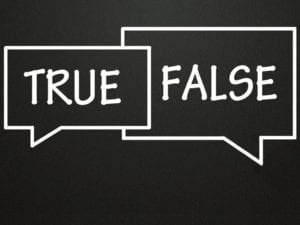The mortgage process is complex. You’ll need to figure out how much you’d like to spend on your new home (and how much you can afford), while providing a range of financial documents, which detail your income, assets, and much more. And of course, you’ll need to undergo a credit check. There are many myths and rumors surrounding mortgages and credit scores, so we decided to clarify the most important points to know. For real estate and mortgage professionals, this is information worth sharing with your clients, given the uncertainty which surrounds these matters.
Mortgage Credit Scores Are A Special Type of FICO Score
There are nearly 50 different types of FICO credit scores. FICO releases updated versions of FICO every few years (for example, if you use the free credit scores offered by Discover, you are receiving FICO Score 8), as well as specialized scores for various types of lending, such as auto loans. For mortgage lending, most (not all) lenders use the FICO Score 5 for Equifax credit reports, FICO Score 2 for Experian, and FICO Score 4 for TransUnion credit data (as we’ve discussed before, for mortgage purposes, lenders pull FICO scores from all three bureaus). These versions are known as Equifax Beacon 5.0, Experian/Fair Isaac Risk Model V2SM, and TransUnion FICO Risk Score, Classic 04.
While the exact different between various versions of FICO and FICO 8 aren’t entirely clear (since the credit scoring algorithms are a secret), many analysts believe that FICO mortgage scores give even more weight to late payments, and other negative credit items, such that if you run into credit issues, your FICO mortgage scores will be lower than your FICO 8 score. Therefore, if such items appear on your credit reports, you’ll want to have them removed from your credit (contact us at the address below for an explanation of how this process works).
Your Mortgage Interest Rate Is Largely Decided By Your Credit Score
Your interest rate is the largest factor in deciding the interest rate you’ll pay on your mortgage. The most competitive interest rates are available to those with a credit score of 760 or higher. Based on calculations from myFico, your interest rate will increase by around 0.05% to 0.1% for every 20 point decrease in your mortgage FICO scores. While these might sound like small amounts, these numbers add up, costing you tens or hundreds of thousands of dollars, over the life of the loan. As your credit score decreases, you are essentially giving money away to the bank, for little reason. It is important to note that your interest rate does not affect how much you can borrow; that’s determined by your income, assets, and debts. However, at any given borrowing amount, if you have strong credit, you’ll pay the lowest amounts possible, which allows you to save (and invest) more of your money, further growing your wealth.\
Lenders Use Your Middle Credit Score
As we’ve noted, mortgage lenders pull all three of your credit reports, and obtain a FICO score for each credit report. However, contrary to popular belief, lenders don’t average credit scores. Rather, they use the middle of your three credit scores. Let’s suppose that your Experian mortgage FICO score is 710, while your TransUnion score is 690, and your Equifax score is 680. Lenders will use the TransUnion score (790), to decide the mortgage rate which they’d like to offer on your loan.
Lenders Use The Lower Mortgage Score Among Joint Applicants
As noted above, for a single borrower, most lenders use the middle score, to decide your mortgage interest rate. What if you are borrowing with your spouse or partner? Lenders will take the middle score of each borrower, and use the lower middle score. Suppose that you have mortgage credit score of 720, 713 and 702. Your spouse has scores of 700, 680 and 675. Your middle score is 713, while your spouse’s is 690. Your mortgage interest rate will be decided by the lower score, that is, your spouse’s score of 680, which will almost certainly mean a higher interest rate. For this reason, it is very important that both parties have strong credit; otherwise, your great credit will mean very little, if it isn’t supported by a similar score for your spouse.
Shiva Bhaskar is an experienced consumer credit attorney, and the cofounder of Tier One Credit (www.tieronecredit.com), a credit consulting firm dedicated to helping every American enjoy the best credit score possible. Shiva can be reached by email at [email protected].



